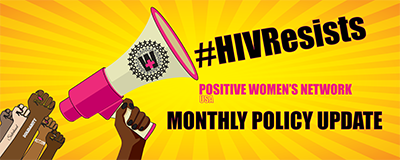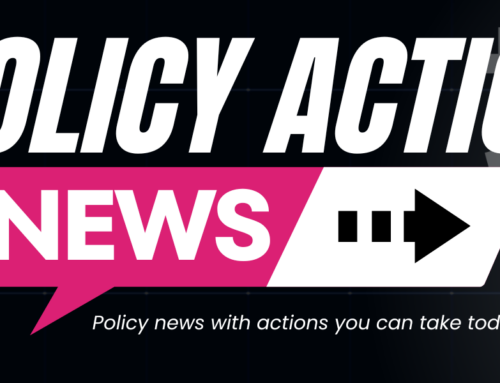
Was this email forwarded to you? Subscribe for bi-monthly emails from PWN in your inbox!
🔥September’s Hot Topic🔥:

Access to Healthcare: Another terrible ruling out of Texas…
In September 2022, a Texas federal district court judge, Reed O’Connor, ruled that the federal requirement that insurance plans cover pre-exposure prophylaxis (PrEP) without out-of-pocket costs violated the religious rights of an objecting employer. Importantly, Judge O’Connor has not decided what the remedy should be, meaning that it’s not clear how far his ruling will extend or how we will be impacted.
Judge O’Connor concluded that an employer who objects to PrEP on religious grounds could legally refuse to cover the important preventive medication in their employees’ insurance plans. Such religious objections are rooted in deeply homophobic, dangerous, and harmful beliefs surrounding PrEP and those who use it. This ruling is the result of a decades-long effort to weaponize religion to violate fundamental rights and roll back access to healthcare, especially for people living with HIV, Black folks, Indigenous people, LGBTQ+ people, women, and people of color. It’s the latest example of the expanding use of religious objections to justify discrimination and hate.
Judge O’Connor also ruled that members of the U.S. Preventive Services Task Force (PSTF), the independent groups of preventive and primary care experts that recommended the coverage of PrEP, were unconstitutionally appointed. The PSTF is a crucial component of the Affordable Care Act (ACA). Their evidence-based recommendations help determine which services health plans must cover without any out-of-pocket costs, and this elimination of out-of-pocket costs is one way the ACA reduced racial and ethnic disparities in preventive care access. Again, O’Connor did not issue any remedy in this case, meaning there is no immediate impact on the PSTF-recommended services.
There are a number of directions that the judge could go in concluding the case. He is notoriously the “go-to” judge for conservatives in highly contentious, partisan cases involving federal policy. Given how he has previously ruled (by, for example, striking down the entire ACA), there will likely be a significant impact on PrEP coverage. Moreover, the PSTF ruling could severely undercut the ACA’s preventive services mandate, impacting out-of-pocket costs for crucial services such as screenings for many types of cancer, HIV and STI screenings, breast and chest feeding services and support, and mental health interventions for pregnant and postpartum people.
We are also waiting to see how Judge O’Connor will rule on a similar religious objection argument made against the ACA’s contraceptive coverage mandate. We will continue to monitor this case and its impacts as it moves through the courts.
Other Updates
The “hot topic” (above) is a deeper dive into one of the most pressing policy-related issues each month for people living with HIV and our communities. But a lot happens each month! Below we list some other important updates relevant to PWN-USA’s intersectional policy agenda.
More updates on access to healthcare:
- The U.S. Department of Health and Human Services (HHS) awarded a $20 Million contract aimed to expand and quicken the distribution of vaccines and treatments for Monkeypox (MPV). There is still more to do and that must be done. The federal response to MPV has been inadequate and uncoordinated, for example, leaving many within the southern states behind.
- New York has declared an emergency over polio, allowing a larger group of medical personnel to administer polio vaccines.
Reproductive Health Rights and Justice
Senator Lindsey Graham introduced a nationwide abortion ban. The bill would ban abortions in all U.S. states after 15-weeks of pregnancy and put the health, lives and human rights of people who can become pregnant in peril.
Unjust efforts to push abortion further out of reach continue in many states. West Virginia became the second state to pass into law a strict abortion ban since the fall of Roe and an Arizona judge allowed a near-total abortion ban from 1864 to go into effect. Meanwhile, clinics providing abortion care in anti-abortion states are struggling to stay open.
A Michigan judge ruled that a 1931 law criminalizing most abortions is unconstitutional. Also recently, a Michigan court ruled in favor of putting abortion rights petition on the November ballot. In Ohio, a judge temporarily paused the state’s six-week abortion ban, which had gone into effect after Roe was overturned in June.
The Dept. of Health and Human Services (HHS) has approved a 12-month extension of postpartum Medicaid and Children’s Health Insurance Program (CHIP) coverage in Indiana and West Virginia, joining 23 other states and D.C. Access to high-quality and affordable health insurance coverage is critical in the first year after pregnancy; this is one step in addressing racial and economic disparities in parental health outcomes.
The Department of Veterans Affairs has proposed a policy that would offer abortion services to veterans and their beneficiaries in cases of rape, incest, and when the life of the pregnant person is endangered, even in states where abortion is banned.
LGBTQ+ Health, Safety & Justice
The Fifth Circuit of Appeals agreed with a lower court’s decision that HHS cannot punish religious employers for refusing to cover or perform gender affirming surgeries or abortions. Like our hot topic, this is another example of weaponizing religion to deny healthcare.
A 2022 proposed rule would strengthen the ACA’s non-discrimination protections for LGBTQ+ people by clarifying that discrimination “on the basis of sex” includes discrimination based on sex stereotypes, sexual orientation, gender identity, and sex characteristics, including intersex traits.
The Senate has postponed voting on the Respect for Marriage Act until after the midterm
 elections. The Act is vital federal legislation that would guarantee the federal rights and benefits of marriage for LGBTQ+ and interracial couples.
elections. The Act is vital federal legislation that would guarantee the federal rights and benefits of marriage for LGBTQ+ and interracial couples.The Supreme Court kept a ruling in place that a religious university must recognize an LGBT student group–at least for now. In response, the university shut down all undergraduate club activities indefinitely, presumably to avoid recognizing the one, LGBT student group. The case has not yet been decided, but given the current composition of the Supreme Court, its outcome could very well roll back anti-discrimination efforts on school campuses.
A judge blocked Montana’s effort to deny people of trans experience the right to amend their birth certificates. Having identification that does not match a person’s gender identity can forcibly “out” transgender people and open them up to increased violence, discrimination and harassment.
Ending Criminalization
- A new William’s Institute report shows Tennessee’s anti-HIV law enforcement targets Black people, especially Black women, people of trans experience and people living in poverty. For a deeper dive, check out Tennessee Blues: Exploring HIV Criminalization in Tennessee, a webinar co-hosted by the Health Not Prisons Collective, the William’s Institute and the Tennessee HIV Modernization Coalition.
- The California legislature recently passed a law, SB 731, which would expand eligibility to seal criminal records for people who served time in prison. The law is a significant improvement on the status quo; however, it does not go far enough, still treating those with more serious felony records or required to register as a sex offender differently.
Economic Justice
- Roughly 15,000 nurses in Minnesota
 staged the largest private sector nurses’ strike in U.S. history as they marched for better pay and safer working conditions. The notable increase in labor organizing and collective action across private and public sectors, including by Amazon workers, is crucial for workers’ rights.
staged the largest private sector nurses’ strike in U.S. history as they marched for better pay and safer working conditions. The notable increase in labor organizing and collective action across private and public sectors, including by Amazon workers, is crucial for workers’ rights.
Ending Violence
- The U.S. Department of Homeland Security (DHS) finalized a new public charge immigration regulation, adding critical protections to secure immigrant families’ access to health and social services such as health, nutrition, housing, and other essential government programs. The Trump-era regulation, reversed over a year ago, caused panic within undocumented communities, essentially criminalizing poverty by depriving immigrants who accessed safety net programs of a chance at legal residency or naturalization. This fear caused an even more exaggerated disparity, when millions stopped seeking health care and food security during the pandemic for fear of deportation or detention.



